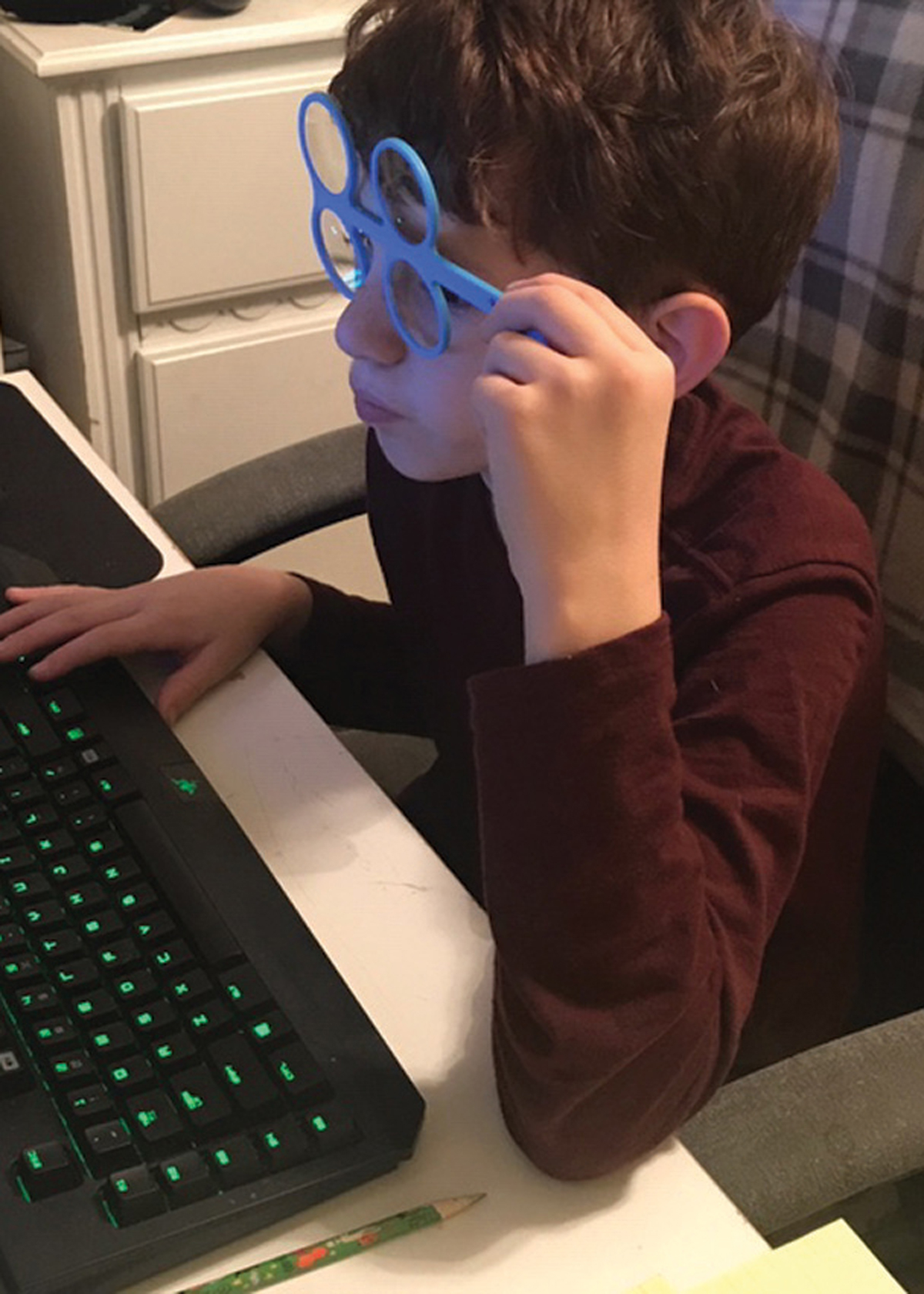 |
Children treated for amblyopia achieved similar academic outcomes to their peers without eye conditions in the study. Photo: Marie Bodack, OD. Click image to enlarge. |
Although studies and anecdotal experiences can confirm that childhood amblyopia can result in slower reading speeds and may affect children’s academic self-esteem, a recent study investigating whether kids treated for the condition had different educational outcomes or goals from those who didn’t found no associations between a history of amblyopia and suboptimal school performance.
The study included data from the Millennium Cohort Study on 9,939 UK-born children followed through age 17. Parents reported eye conditions, and treatment was coded by clinical reviewers. Children were grouped into the following categories: no eye conditions, strabismus alone, refractive amblyopia and strabismic/mixed (refractive + strabismus) amblyopia. Outcome measures included levels and trajectories for passing English, math and science (ages seven to 16), passing national exams (age 16) and intent to pursue higher education (ages 14 to 17).
The researchers reported that amblyopia status wasn’t associated with performance in any of the schooling levels or intent to pursue university education. They also observed no differences between the groups in terms of age-related trajectories of performance in schooling levels or intent to go to university.
“These findings should reassure families, teachers, clinicians and policymakers that having amblyopia need not be considered a barrier to educational outcomes or ambitions,” the researchers concluded in their paper.
They noted, however, that the participants in their study cohort didn’t report lower than average confidence in school performance, but prior studies have reported that children with amblyopia or strabismus may be subject to bullying more often and have lower academic self-perception. “Parental expectations highly influence children’s intentions regarding higher education, but we found no synergistic effect between parents’ expectations for their children and their child’s amblyopia status, which is also encouraging,” the researchers added.
Horvat-Gitsels LA, Cortina-Borja M, Rahi J. Educational attainment and trajectories at key stages of schooling for children with amblyopia compared to those without eye conditions: findings from the Millennium Cohort Study. PLoS One. 2023;18:3:e0283786. |


